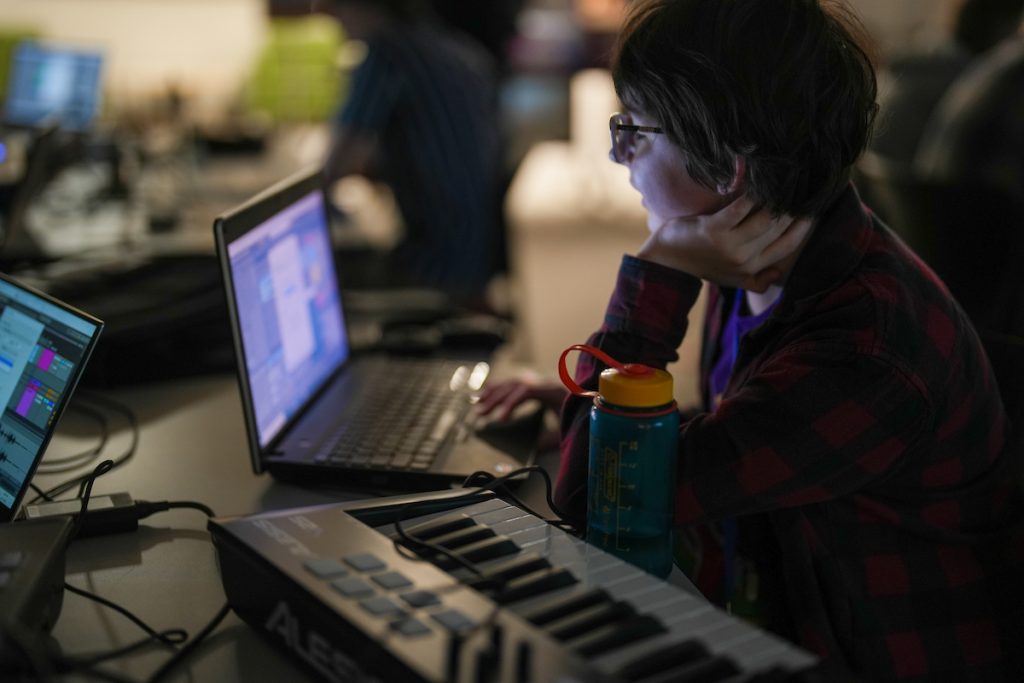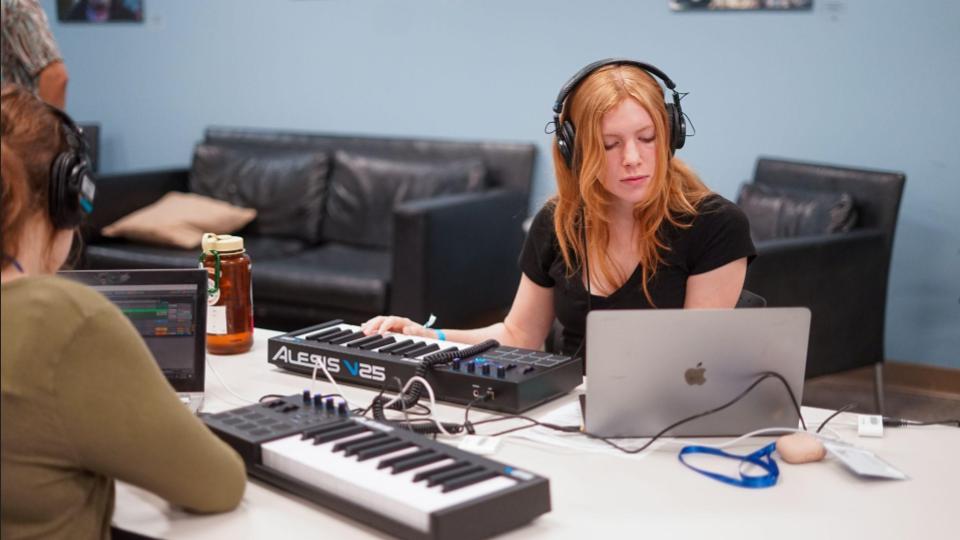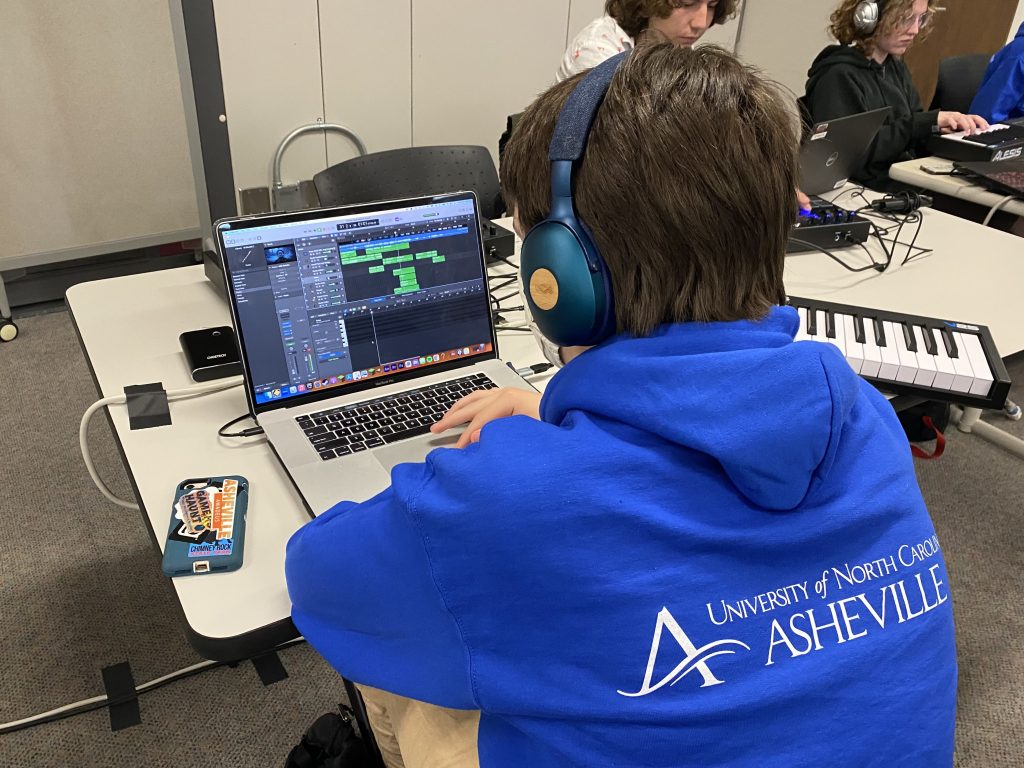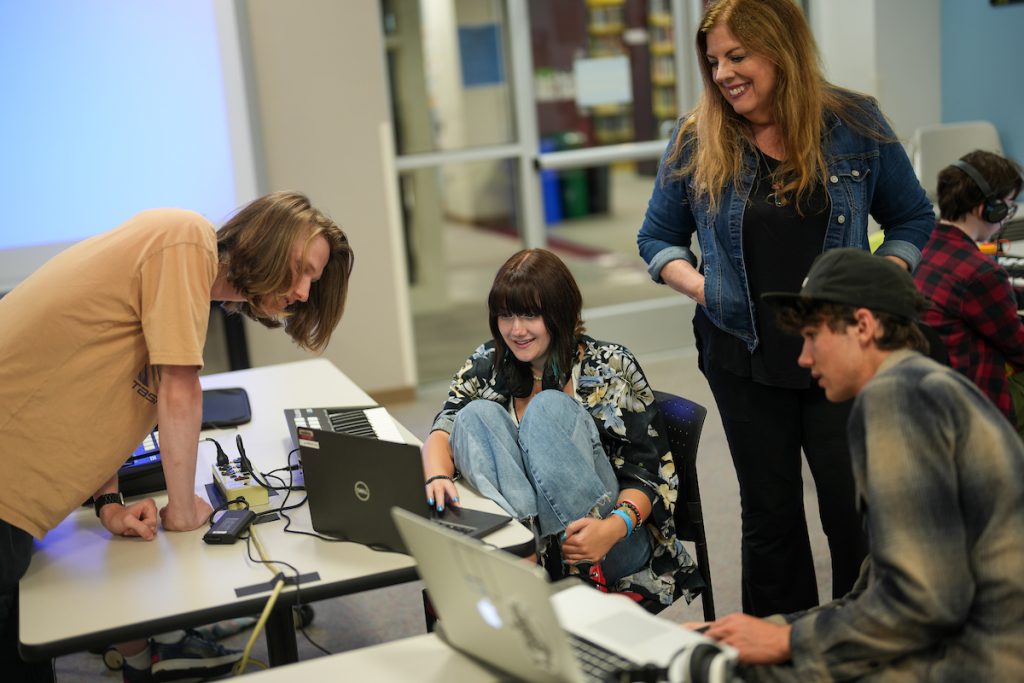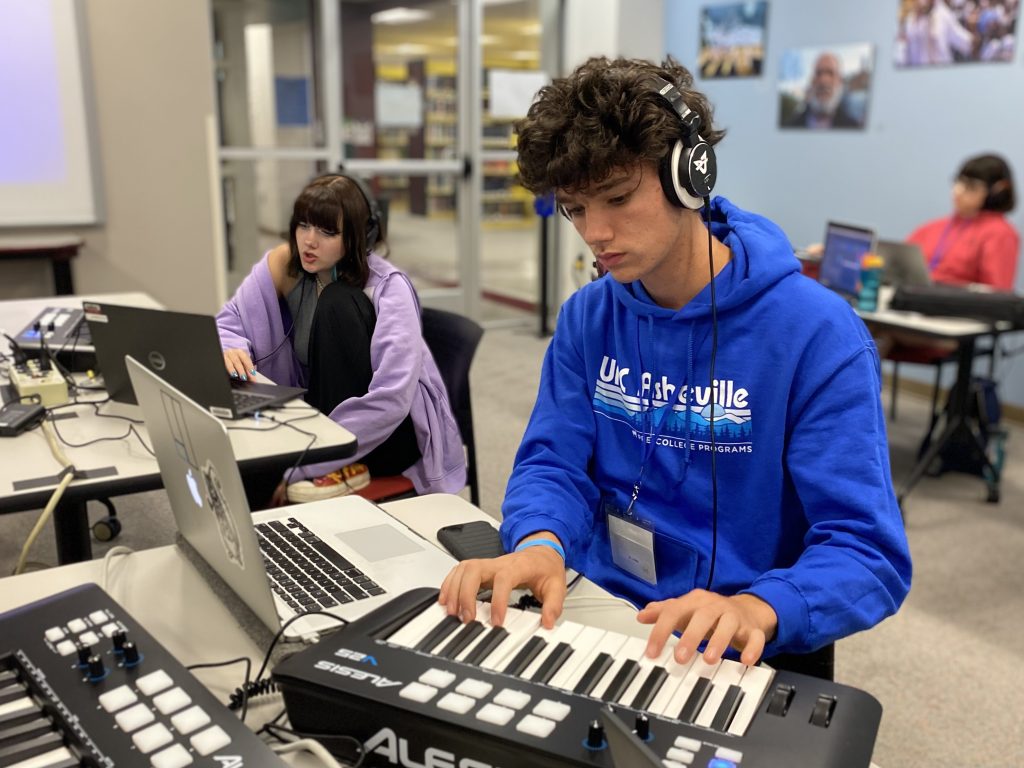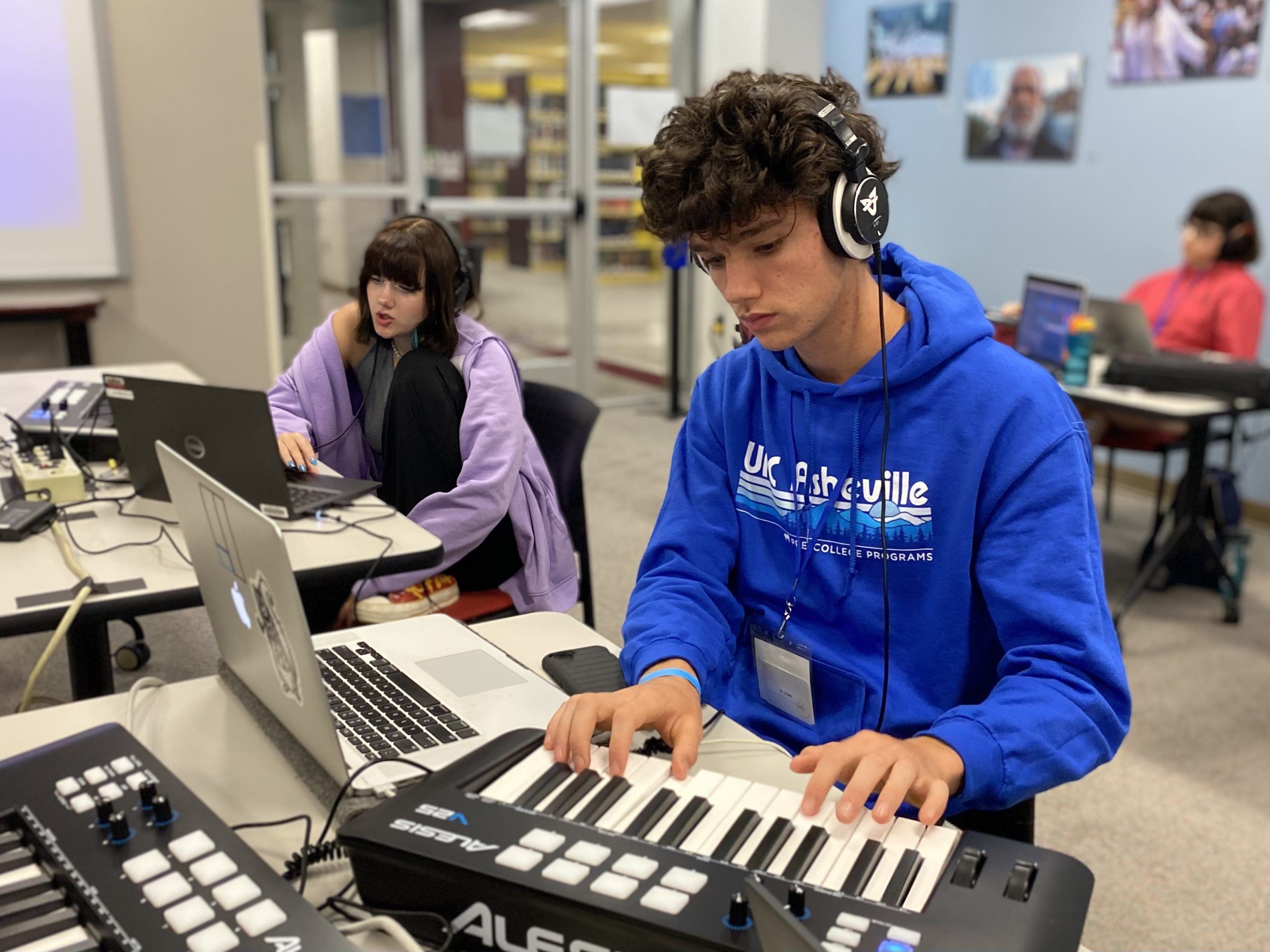
Film Scoring & Sound Design
Music is an important part of the storytelling process in films. Learn how to compose cinematic music that evokes emotion using Hollywood film scoring techniques. In this class, we will develop a score concept, work with virtual instruments and compose music for an animation film. Sound design is taught by using textures and effects to enhance dynamics for visual impact. Musicians, non-musicians and film students are welcome.
Registration opens december 2025:
- June 21-26, 2026
- $1,460
- Pre-College Programs are open to rising high school sophomores, juniors, and seniors.
- Price includes lodging, meals, all course materials, activities, and excursions.
- A $500 deposit is required at the time of registration, with the remaining balance due by May 1, 2026. After that date, full payment is required at registration. Click here to see our cancellation policy.
- Students reside in campus residence hall and dine in campus dining hall
- Enrollment is open until spaces are filled
- Registration is through the Camp Doc platform. Detailed registration instructions can be found here.

- Setting up your DAW (Digital Audio Workstation)
- Creating Audio and MIDI tracks
- Importing Movie to DAW
- Selection of Virtual Instruments
- Tempo, Time Signature, Metronome, Markers
- Uses of Music for Emotional Content; Themes, Motifs, Ostinatos
- Textures, Dynamics and Sound Design
- Technical Applications for Exporting Music to Film; Frame Rate, Sample Rate, Bouncing Audio Tracks
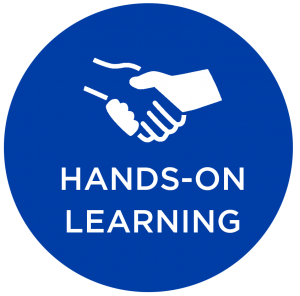
- One on one instruction using industry standard digital audio recording software Logic Pro X
- Students import scenes with different emotional tones and compose music that heightens the intended feelings such as suspense, joy, or sadness
- The class will analyze a film together to identify where music should start, stop, and change mood.
- Each student will practice syncing music precisely to visual cues, and learn how to score action hits, dialogue delivery, and dramatic reveals
- Using Logic Pro X, students study how to adjust the tempo and time signature for the same scene to explore how pacing affects the storytelling
- Create and record short musical motifs for specific characters or ideas in the scene
Topics and schedules are subject to change
Sample Schedule:
Morning
- 8 a.m. – Breakfast
- 9 a.m. – Creating the emotional musical impact and dynamics of a scene
- 12 p.m. – Lunch & free time
Afternoon
- 1 p.m. – Understanding tempo tapping, markers and volume levels for music with dialogue
Evening
- 5 p.m. – Dinner
- 6:30 p.m. – Activities / Recreation / Free Time
Options could include: sand volleyball, Asheville Tourists game, game night, movie - 11 p.m. – Lights out
Topics and schedules are subject to change
Meet Your Faculty
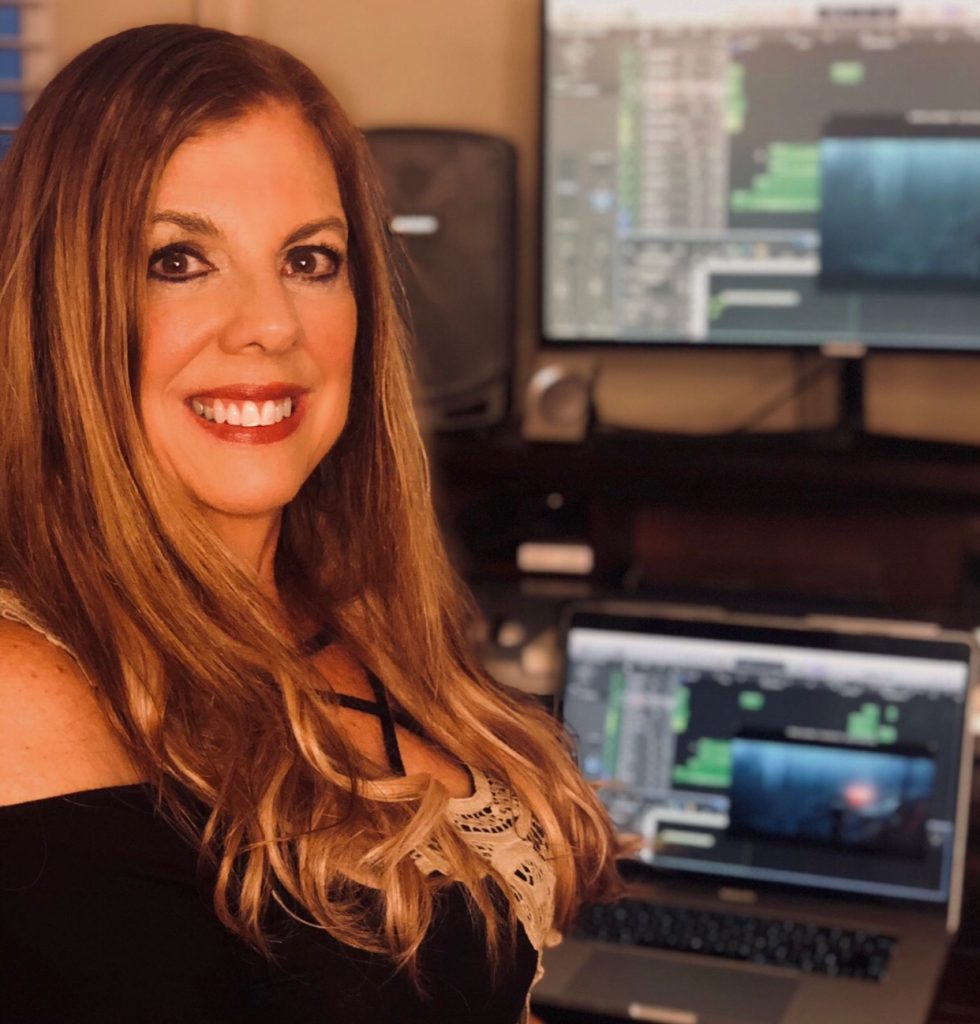
Janet Rabin Phillips earned her master’s degree from the North Carolina University School of the Arts in film music composition. She studied under David McHugh (film composer for Mystic Pizza and Three Amigos) and studied audio recording by John Sisti (Oscar winner for Best Sound in Bram Stokes’ Dracula).
Janet’s skills include music for film, television shows, documentaries, animations, commercials and sound design for games. Janet’s most recent accomplishments are music scores for The Continuum Project and The Healer, commercials for Furnitureland South and The Museum of Science Fiction as well as game sound design for Virtual Heroes.
Janet is a producer and owner of Cinematic Cues, a music licensing company for film. Janet has also taught college courses in music composition, audio recording, sound design and digital effects processing.
janetrabinphillips.com
cinematiccues.com
Questions? Please contact us at precollege@unca.edu.

